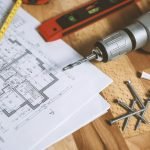
For some people, the move from an apartment to a house is one that they’ve been dreaming about for years. Finally being able to free themselves from landlords, rent, and creepy wall-sharing neighbors is certainly a goal worth pursuing. However, while you’re preparing to make that jump from tenant to homeowner, you’ll need to be aware of some things. Many first time home buyers find themselves facing bigger problems and stresses than they ever experienced in an apartment, and the shock of it all can really ruin the excitement and joy of owning your own place. Don’t let that happen to you. Here are a few tips to help make your move from apartment to house a successful venture.
1. Know your responsibilities
In an apartment, your particular responsibilities as a renter are limited. You’re not expected to make home repairs because it’s the responsibility of the landlord to take care of that. The same goes for plumbing, heating and cooling issues, and grounds-keeping. These are all costs that most renters are happy to avoid. However, when you purchase a piece of property, these concerns are now unequivocally yours. You may not have known or cared how to work the sprinkler system back at your old apartment, but you’ll need to know how to use them at your new house. Simply put, if you own the home, you own the problems. So, as a homeowner, it pays to consider just how much extra these added responsibilities are going to cost on average per month, both in terms of time and money. Likewise, as a renter, you would probably simply wait for something to fail before urging your landlord to get it fixed. As a homeowner, you’ll want to regularly inspect and perform maintenance on your home’s various systems so that you can catch any minor issues before they become big problems.
2. Get your finances in order
Buying a home isn’t just about scraping some money together and signing some papers; a house is a decades-long commitment that requires careful scrutiny of your income and finances. You’ll need a high credit score if you want to get the best possible interest rates. If your credit score has some room for improvement, consider waiting on purchasing a house until you can build it up a bit. Also, when you’re planning your budget, be sure to include more than just the monthly mortgage payment, as you’ll also need to consider the cost of maintenance, heating and cooling, water, waste removal, electricity, taxes, and possibly even Homeowner Association (HOA) fees. These expenses can really build up fast. Some expenses homeowners forget to consider are small things like pest control services, changing the air filters regularly, maintaining the water softener unit, monthly or annual home automation or security system costs, lawn care and fertilization, to name a few. These small expenses add up quickly and, if you’re not careful, they could put your budget in the red. A few ways you could prepare your pocketbook for these expenses is by checking out online reviews, such as, home security reviews or lawn care reviews, before making a decision. Look at the services for individual companies and the products that they offer, often times they will have sales or promotions that you can take advantage of.
3. Look for the right home; not simply the biggest
When it comes to real estate, we currently find ourselves in a “buyer’s market.” This means that there are fewer people looking to purchase a home than there are trying to sell one. This can result in low house prices and great interest rates for the new home buyer. However, it can also mean that certain house hunters—especially ones who are sick of the tight fits and small storage space associated with apartments—may end up pushing the limits of their affordability by jumping at the chance to purchase a mansion for a really good deal. These homeowners often end up regretting their decision, when they find themselves spending sometimes as much as 50% of their income or more just on monthly payments for a home that’s too large for their needs. Find something that’s the right size and price for you. Having a gigantic building isn’t worth it if you end up house-poor as a result.

4. Decorate and remodel gradually
For many ex-renters, the realization that you now actually own your own property can lead to an almost feverish urge to personalize everything. Light fixtures, landscaping, paint colors, etc., all feel as though they need to be replaced as quickly as possible. But while any one of these projects could probably be accomplished relatively quickly and inexpensively, all of them together will create time and budget concerns that you may not be ready to deal with. Instead, work on individual projects one at a time and make sure that you’re not overextending your ability, or your bank account.
5. Have fun!
You’re becoming a homeowner! Don’t let the stress or concerns ruin it for you. As long as you take things slow, keep an eye on your finances, and behave responsibly, everything should work out just fine. So grab your keys, swing wide your new front door, and revel in the fact that you don’t have to pay rent anymore. Now, if you could just figure out how to work that sprinkler system…
Author Bio: David Glenn is a home improvement expert. He occasionally freelance writes about home automation and making your home more green. Check out Vivint’s home automation systems for state of the art home automation.






